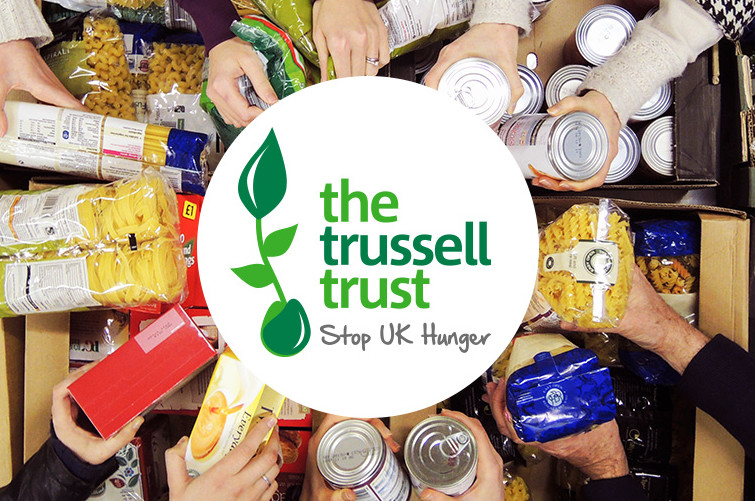Our series of blogs deep-diving into what’s happening in food banks continues, as Research Manager Tom Weekes delves into today’s new report on destitution from the Joseph Rowntree Foundation.
Destitution. A word that conjures images of complete poverty, something that surely couldn’t happen in a modern society? Yet today’s shocking release by the Joseph Rowntree Foundation (JRF) reminds us that not only is destitution common across the UK, it is a fast-growing problem.
This is something that food banks in the Trussell Trust network will unfortunately be well aware of. Food banks have long been at the frontline of destitution – our latest data shows that 94 per cent of people referred to food banks in our network were classed as destitute.
JRF’s research estimates that more than 2.4 million people experienced destitution at some point in 2019, including over half a million children. These figures are up by a staggering 52 and 54 per cent respectively since they were last measured in 2017.
Given the significant economic impact of the Covid-19 pandemic, the number of people experiencing destitution is likely to have been even higher during 2020. Food banks have seen record levels of need this year already. The Trussell Trust recorded a 47% increase in the number of parcels distributed during the first six months of the crisis in comparison to the same period in 2019.
What does destitution mean?
There are many different definitions of poverty used in the UK, but in short destitution means people are unable to afford the absolute essentials that we all need. These include (brackets detail how they are measured):
- Shelter (someone has slept rough for one or more nights)
- Food (someone has had fewer than two meals a day for two or more days)
- Heating their home (someone has been unable to heat their home for five or more days)
- Lighting their home (someone has been unable to light their home for five or more days)
- Clothing and footwear (appropriate for the weather)
- Basic toiletries (such as soap, shampoo, toothpaste and a toothbrush
Why are people falling into destitution?
The report highlights a number of factors that drive destitution including issues with the administration of benefits, the sufficiency of benefit payments and eligibility for benefits.
Some of these issues have been partially – and temporarily – addressed during the Covid-19 crisis. We have seen welcome steps by the government to support people, including the temporary £20 weekly increase to Universal Credit and essential investment in Local Welfare Assistance in England. However, this report highlights the issue of debt to the government. It finds that the five-week wait for the first UC payment, and the reduction in payments people then get when they have to pay back an advance taken to cover that wait, is a core driver of destitution.
A woman interviewed for the JRF study states:
“… as soon as my claim went through … I owed them £514 … Because for six weeks I had no income, so when I got the advance, that went on everything that I [already] owed … Then by the time I got to December – you’re just never catching up, because of the way it starts. Hence, the reason that we had to use a food bank to even survive.”
This was reflected in our recent work which detailed that almost half of people who were supported by food banks in the Trussell Trust’s network this summer were having money taken by the government from their benefit payments, with close to three in four of those on Universal Credit repaying an advance payment.
What can we do?
This isn’t right and the government can take immediate action by:
- Suspending benefit deductions during the winter months until there is a more just system for repaying advance payments and other debts to the DWP.
With the uplift to Universal Credit ending at the end of March 20201, the government must also make the right choice in supporting people from April next year. They need to:
- Lock in the £20 rise to Universal Credit, and extend it to people currently excluded.
This increase has been a lifeline, essential in preventing many more people falling into destitution. Removing it would be a hammer blow to families relying on it to get by across the country. That is why we have joined with JRF and organisations across the anti-poverty sector to urge the government to Keep the lifeline.
We can create a future where destitution is something we only read about in history books – a Hunger Free Future, where we all have enough money for the basics. If you want to help end this injustice for good, join us in the campaign for a Hunger Free Future today.



